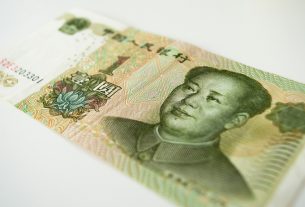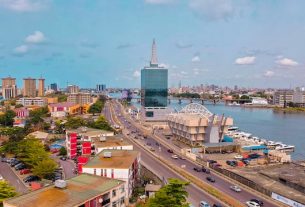In a surprising move, China’s central bank, the People’s Bank of China (PBoC), has announced a reduction in one of its key lending rates while leaving another unchanged. This decision has caught economists off guard, as they were anticipating more assertive measures to bolster the nation’s economic growth amidst growing concerns about its trajectory.
As the world’s second-largest economy grapples with a slowdown, it faces the additional challenge of slipping into deflation, marked by a year-on-year decline in prices. This deflationary trend can be attributed to a decrease in domestic spending, which is dampening the post-Covid economic recovery.
The economic woes have been particularly pronounced in the Chinese property industry, which is now in a state of crisis. The deceleration has exposed developers who had overextended themselves. A prime example is Evergrande Group, once a leading property developer in China, which recently filed for bankruptcy protection in the United States. This move is part of the company’s effort to restructure its substantial debts.
To counter these challenges, the PBoC has taken action by reducing interest rates. However, the recent decision has surprised experts. The central bank has lowered the one-year loan prime rate, a benchmark for corporate lending, from 3.55% to 3.45%. However, the five-year equivalent, which largely influences mortgage pricing, remains unchanged at 4.2%. Market analysts had predicted cuts in both rates, each by 0.15 percentage points.
Last week, the central bank had already surprised observers by decreasing the medium-term lending facility rate by 0.15 percentage points. This move was expected to drive down borrowing costs across the economy.
Economists Julian Evans-Pritchard and Zichun Huang from Capital Economics suggest that China is currently striving to strike a balance between stimulating economic activity and safeguarding the health of its banks. They underline that the PBoC’s monetary policy approach might have limited impact in the current circumstances. More substantial rate cuts or regulatory interventions may be necessary to restore confidence in the housing market and reignite demand.
The pressure on China’s economy is especially evident in its property sector, which comprises around a quarter of the nation’s economy. Apart from Evergrande’s significant debt burden, another major developer, Country Garden, is facing potential repayment defaults, putting numerous housing projects at risk. Many households have already made payments for these projects.
George Magnus, an expert on China’s economy, warns that the instability in the property market poses a significant risk to financial stability and could lead to social issues if developers are unable to deliver on pre-sold housing units. Magnus notes that the property market had been artificially supported by government interventions over the past few decades, but this approach is now proving unsustainable in the face of current challenges.



